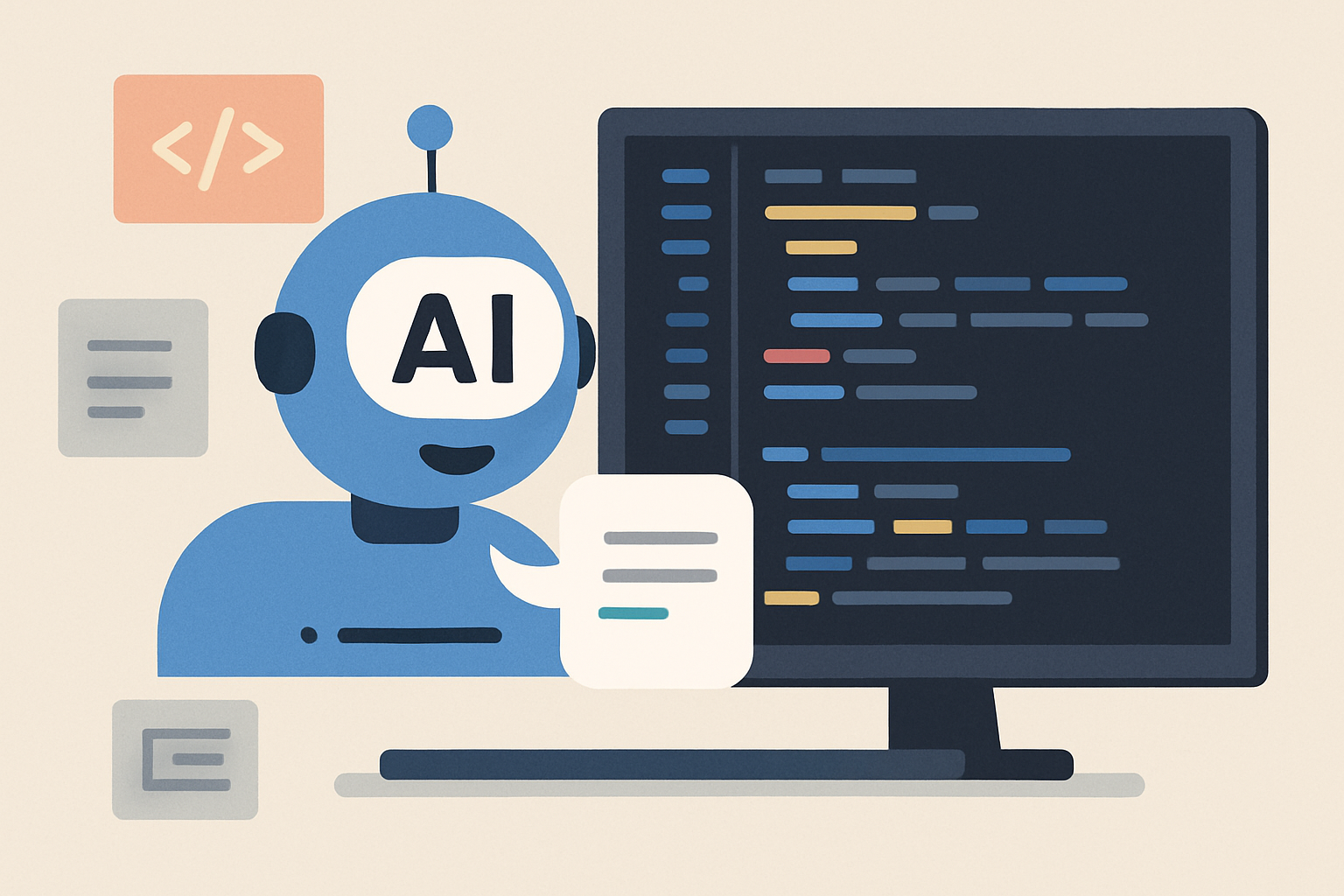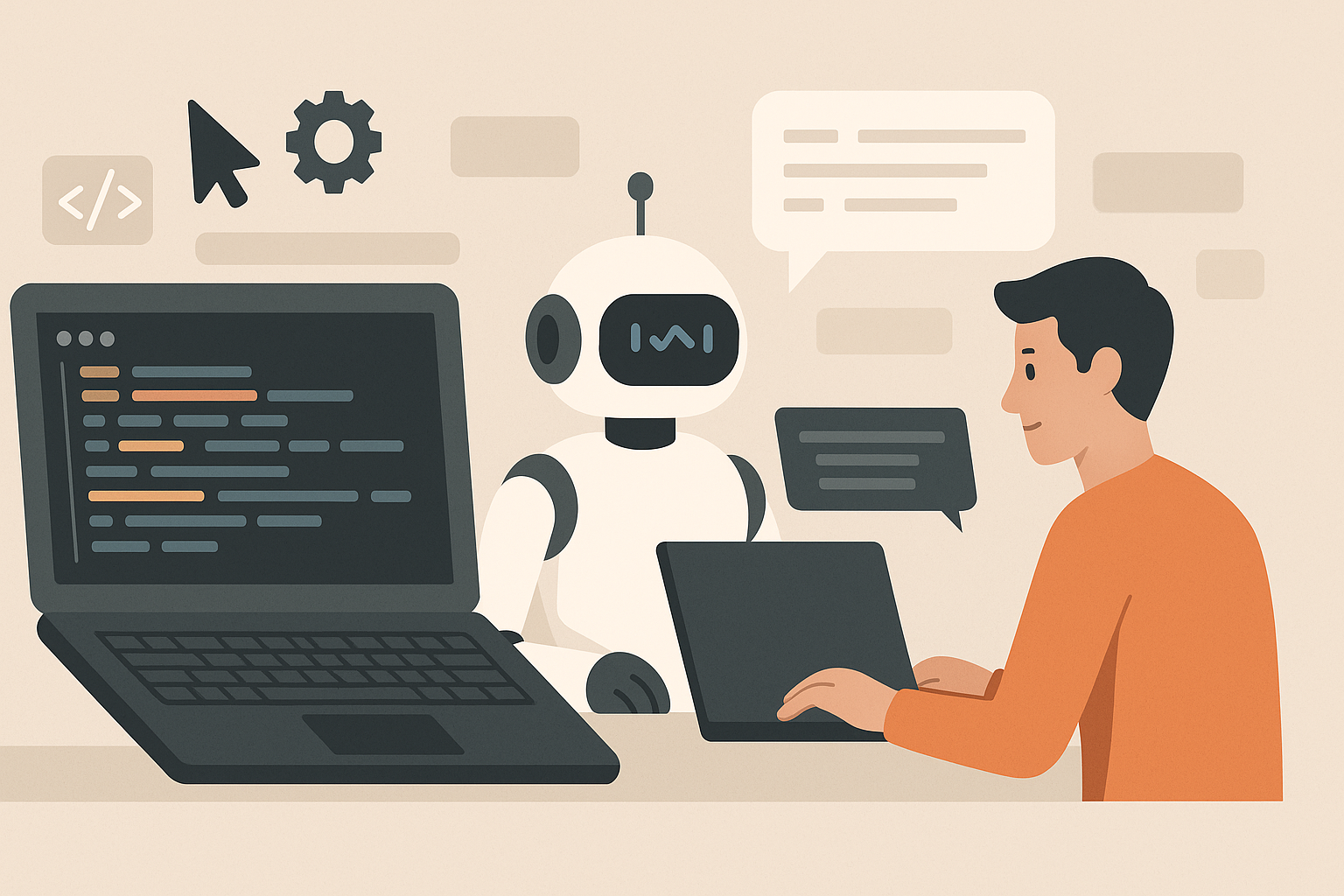Building an AI Coding Assistant

As a full-stack developer, I’m always looking for ways to optimize how I code. Recently, I started building an AI-powered coding assistant designed to speed up common development tasks, reduce boilerplate, and give me intelligent suggestions while coding. I went into the project expecting a productivity boost-but what I learned along the way was much more than that.
Here’s a behind-the-scenes look at how I built my assistant, what worked well, and where AI still has its limitations.
🧩 The Idea
The goal was simple: create a tool that could assist with repetitive coding tasks-things like writing standard functions, generating component templates, suggesting syntax fixes, or even creating documentation.
There are plenty of existing tools like GitHub Copilot and ChatGPT that do this in general contexts. But I wanted something that felt tailored to my stack, could be customized with project-specific prompts, and lived closer to my coding environment.
So, I started building my own lightweight AI code helper, powered by the OpenAI API.
⚙️ The Stack
The assistant is a small utility that I integrated into my local dev environment:
Frontend: Electron + React (for a minimal UI
Backend: Node.js with OpenAI API
Editor integration: CLI (command line interface) triggers with VS Code tasks
Prompt templates: YAML (YAML Ain't Markup Language) files with predefined task types
The idea was to run a command like generate crud auth or suggest test for registerUser, and the tool would return usable code suggestions in context.

✅ What Worked
1. Speeding up Boilerplate Tasks
One of the biggest wins was automating boilerplate code-things like setting up routes, writing repetitive validation logic, or initializing service layers. These aren’t hard to do, but they take time and are prone to inconsistencies.
With just a few prompts, I was able to generate clean code that was 80–90% ready to use. For example, generating a complete CRUD module (controller, service, routes) for a resource like “posts” saved at least 30–40 minutes.
2. Prompt Tuning = Better Output
I spent time crafting custom prompts for the AI assistant based on the way I work. Instead of generic “write a function” queries, I gave it context:
"Write an Express.js route handler that validates input using Joi and handles MongoDB errors gracefully."
This made the assistant’s suggestions significantly more accurate and closer to my actual coding standards. Prompt engineering turned out to be a superpower.
3. Smarter Naming and Comments
The assistant was surprisingly good at naming functions, variables, and writing clear inline comments. This improved readability and made my code more maintainable-especially when jumping back into a project after a few weeks.
❌ What Didn’t Work
1. AI Hallucinations & Wrong Assumptions
One of the biggest challenges was the occasional **“hallucination”-**where the AI generates code that looks correct but includes libraries that aren’t installed, misuses syntax, or assumes a different framework.
For example, it sometimes mixed up Mongoose with Prisma conventions, or returned outdated React patterns. If I hadn’t been careful, these could have introduced bugs.
Lesson: Always verify before copy-pasting. AI suggestions need to be reviewed like any code from a junior developer.
2. Context Limitations
Since this was a lightweight tool and not fully integrated into my editor, the assistant lacked true code context. It couldn’t “see” other files or understand the current structure of the app unless I manually pasted it into the prompt.
Tools like Copilot have an advantage here with IDE-level context awareness. My assistant was limited to what I fed it, which made some tasks clunky.
3. Limited Understanding of Business Logic
While the assistant was great at generic code generation, it struggled with project-specific logic. Business rules, naming conventions, and architectural decisions are things you just can’t expect AI to guess correctly.
This is where human thinking is still essential.
🧠 Key Takeaways
**AI can supercharge productivity-**especially for repetitive or templated code.
Prompt engineering is critical: the better the input, the better the output.
It’s not a replacement for thinking: AI is a tool, not a developer.
Building my own assistant gave me more control, and the process itself sharpened my understanding of how to work withAI, not against it.
🚀 What’s Next?
I plan to extend this tool with:
Editor plugin integration (starting with VS Code)
Project-aware context fetching
Custom command sets per framework (Laravel, React, etc.)
Eventually, I’d love for it to feel like a silent coding partner-always available, never in the way.
💬 Call to Action
Are you using AI in your development workflow? I’d love to hear how. Let’s connect and share what’s working-and what’s not.
